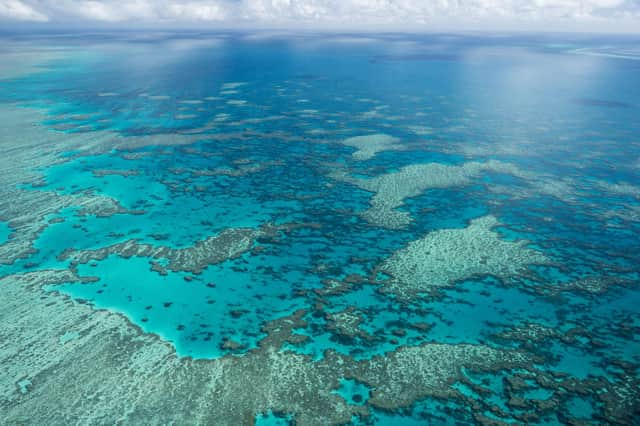Australia avoids Unesco downgrade of Great Barrier Reef


Unesco had recommended that its World Heritage Committee add the world's largest coral reef ecosystem off the north-east Australian coast to the World Heritage in Danger list, mainly due to rising ocean temperatures.
But Australian-proposed amendments to the draft decision at a committee meeting in China on Friday deferred the "in danger" question until 2023.
Advertisement
Hide AdAdvertisement
Hide AdIn the meantime, a monitoring mission will visit the reef to determine how the impact of climate change can be managed.
Representatives of 16 of the 21 committee nations apart from Australia spoke in favour of the amendments before the committee accepted the position without a vote.
Only Norway argued for the reef to be listed "in danger". The committee usually makes consensus decisions.
Australian Environment Minister Sussan Ley told the virtual meeting that downgrading the reef's status before the committee had finalised its own climate change policy made no sense.
"Delegates, we ask only two things: time for experts to see first hand our commitment to the reef, its present condition and our management, and for the final climate policy to provide a consistent framework for addressing the impacts of climate change on all World Heritage properties," she said from Australia, where she is in quarantine after lobbying delegates in Europe and the Middle East on the decision.
In 2014, Australia was warned that an "in danger" listing was being considered rather than being proposed for immediate action.
Australia had time to respond by developing a long-term plan to improve the reef's health called the Reef 2050 Plan.
Since then, the reef has suffered significantly from coral bleaching caused by unusually warm ocean temperatures in 2016, 2017 and last year. The bleaching damaged two-thirds of the coral.
Advertisement
Hide AdAdvertisement
Hide AdAustralia reacted angrily last month when the draft decision was published to remove the network of 2,500 reefs covering 348,000 square kilometres (134,000 square miles) from the World Heritage list it joined 40 years ago for its "outstanding universal value".
The "in danger" listing is one step away from losing all World Heritage standing.
"This decision was flawed. Clearly there were politics behind it," Ms Ley said at the time.
Many in Australia's conservative government saw the move as an attempt to pressure it into committing to reducing the nation's greenhouse gas emissions to zero by 2050 and to stop allowing coal mines to be expanded.
The Chinese host of the committee meeting in the city of Fuzhou this week defended the proposed "in danger" listing against Australian government suspicion that China influenced the finding for political reasons.
"Australia, as a member state of the World Heritage Committee, should ... attach importance to the opinions of the advisory bodies and earnestly fulfil the duty of World Heritage protection instead of making groundless accusations against other states," said Tian Xuejun, the Chinese vice-minister of education and the president of this year's session.